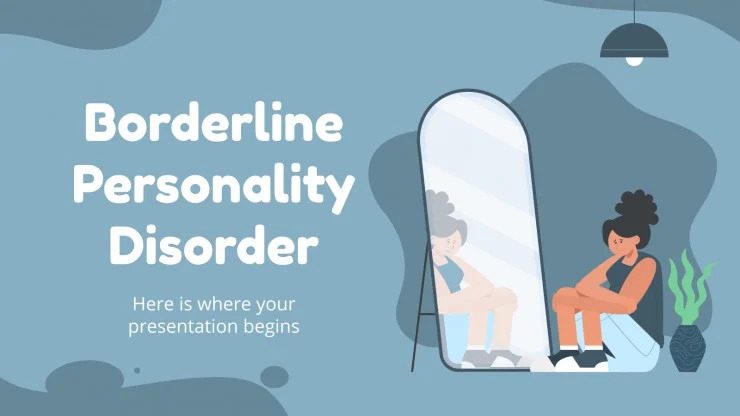

Loving someone with Borderline Personality Disorder (BPD) can be challenging. People with BPD often have intense and unstable relationships, and may struggle with emotional regulation, impulsivity, and self-harm. If you are in a relationship with someone who has BPD, setting healthy boundaries is crucial for your own well-being, as well as for the health of your relationship. In this article, we will discuss tips and strategies for setting boundaries with a loved one with BPD.
Before we dive into the specifics of setting boundaries, let’s define what boundaries are. Boundaries are limits that you set on what you are willing to accept in a relationship. They can be physical, emotional, or mental. Boundaries help us to define ourselves as individuals, and to communicate our needs and expectations in a relationship.
Boundaries are especially important when you love someone with BPD because people with BPD often struggle with boundaries themselves. They may have difficulty understanding and respecting other people’s boundaries, and may engage in behaviors that violate those boundaries. Setting clear and consistent boundaries can help to create a sense of safety and stability in the relationship, and can also help your loved one to develop healthier relationship patterns.
Saying no to someone with Borderline Personality Disorder (BPD) can be particularly difficult. People with BPD may struggle with rejection and abandonment issues, and may react intensely to perceived rejection or criticism. However, setting boundaries often requires saying no to requests or behaviors that are not acceptable to you.
When saying no to someone with BPD, it’s important to be clear and direct. Avoid making excuses or giving false hope, as this can lead to confusion and further boundary violations. Instead, be firm and consistent in your response. It’s also helpful to provide a brief explanation for your decision, while still respecting your own privacy and boundaries. For example, “I’m sorry, but I cannot loan you money at this time” or “I’m not comfortable discussing that topic with you.”
It’s important to remember that saying no to someone with BPD may trigger intense emotions and reactions. It’s important to validate your loved one’s feelings and express empathy while still maintaining your own boundaries. For example, you might say, “I can see that you’re feeling hurt, but my decision is not going to change.” It’s also important to take care of yourself after setting a boundary or saying no. Allow yourself time to process any emotions that may come up, and practice self-care activities like exercise, meditation, or spending time with supportive friends and family.
Overall, saying no to someone with BPD can be challenging, but it’s important to prioritize your own needs and boundaries. By being clear, direct, and empathetic, you can set healthy boundaries while still maintaining a positive and respectful relationship with your loved one.
Before you can set boundaries with your loved one, it’s important to take a look at your own needs and values. What are you willing to accept in a relationship? What are your deal-breakers? Take some time to reflect on these questions so that you can communicate your boundaries clearly and confidently.
When setting boundaries, it’s important to be clear and specific about what you are and are not willing to accept. Avoid vague or general statements, and instead, use concrete examples to illustrate your boundaries. For example, instead of saying, “I don’t like it when you yell at me,” you might say, “I need you to speak to me calmly and respectfully, even when you’re upset.”
When communicating your boundaries, use “I” statements instead of “you” statements. This helps to avoid blaming or accusing your loved one, and instead, focuses on your own needs and feelings. For example, instead of saying, “You’re always so controlling,” you might say, “I feel uncomfortable when I don’t have control over my own decisions.”
Setting boundaries is not a one-time event; it’s an ongoing process. It’s important to be consistent with your boundaries and to follow through on consequences when they are violated. This helps to establish trust and respect in the relationship.
Loving someone with BPD can be emotionally taxing. It’s important to take care of yourself by practicing self-care activities like exercise, meditation, and spending time with supportive friends and family.
Seeking professional support can be an important step in setting healthy boundaries with a loved one with Borderline Personality Disorder (BPD). A Barrie psychotherapist can provide guidance, support, and validation during the process of setting boundaries. They can also help you develop effective communication skills, manage intense emotions, and cope with any challenges that may arise in the relationship.
If you’re considering seeking professional support, it’s important to find a therapist who is knowledgeable about BPD and experienced in working with individuals and families affected by the disorder. You may also want to consider attending a support group for family members or loved ones of people with BPD, where you can connect with others who are going through similar experiences.
Setting healthy boundaries with a loved one with BPD is an important step in creating a safe and stable relationship. By starting with self-reflection, being clear and specific, using “I” statements, being consistent, practicing self-care, and seeking support, you can create a healthy and fulfilling relationship with your loved one. Contact online therapy Ontario for professional help.
Learn about the effects of single-use plastics in farming and explore solutions like biodegradable materials…
Some industries rely on custom tools and equipment more than others, and for good reason.…
In today's fast-paced, technology-driven world, children are often drawn to screens rather than outdoor activities.…
Ensure your food service success with a strong food safety foundation. Protect customers, build trust,…
If you have ever received the wrong e-commerce order, you might have wondered what caused…
Explore the life-changing benefits of arts and crafts for seniors, including improved mental sharpness, emotional…